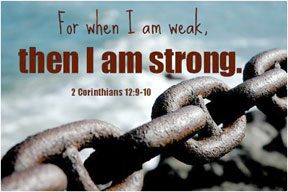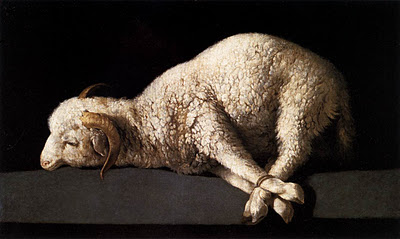Birds of a Rainbow Feather, by William Mahoney, Ph.D.
April 14, 2023Appeals Court Bans Mail-Order Abortions, Restores Strict Abortion Pill Limits But Lifts Nationwide Block, by Steven Ertelt
April 14, 2023
By Dr. Jeff Mirus, Catholic Culture, Apr 13, 2023
Jeffrey Mirus holds a Ph.D. in intellectual history from Princeton University. A co-founder of Christendom College, he also pioneered Catholic Internet services. He is the founder of Trinity Communications and CatholicCulture.org.
 Reading St. Paul is always a bit of a romp. No voice in Scripture is more capable of simultaneous self-deprecation and self-defense. A classic case is found in chapter 12 of Second Corinthians, where St. Paul defends the probity of his own ministry in Corinth: “Though if I wish to boast, I shall not be a fool, for I shall be speaking the truth. But I refrain from it, so that no one may think more of me than he sees in me or hears from me” (2 Cor 12:2). He goes on to explain how he received a thorn in the flesh, “a messenger of Satan, to harass me” (12:7)—but this was “to keep me from being too elated by the abundance of revelations” he had received.
Reading St. Paul is always a bit of a romp. No voice in Scripture is more capable of simultaneous self-deprecation and self-defense. A classic case is found in chapter 12 of Second Corinthians, where St. Paul defends the probity of his own ministry in Corinth: “Though if I wish to boast, I shall not be a fool, for I shall be speaking the truth. But I refrain from it, so that no one may think more of me than he sees in me or hears from me” (2 Cor 12:2). He goes on to explain how he received a thorn in the flesh, “a messenger of Satan, to harass me” (12:7)—but this was “to keep me from being too elated by the abundance of revelations” he had received.
Oh yes, this is classic St. Paul. But the lesson is a good one, for as Our Lord told him, “My grace is sufficient for you, for my power is made perfect in weakness” (12:8).
Paul’s ministry, of course, bore great fruit, not only while he was still on earth, but ever since. And yet, as far as we in the West can tell, he must be as frustrated as the rest of us (were that possible in Heaven) by how that fruit has declined and rotted in our own time. Which of us has not learned at least as thoroughly as St. Paul that we have nothing to boast of but our own weakness—that, indeed, we must be content with weaknesses, insults, hardships, persecutions, and calamities. And what is the difference between this and despair? Simply what St. Paul himself concludes: “For when I am weak, then I am strong” (12:9-10). ….





 Reading St. Paul is always a bit of a romp. No voice in Scripture is more capable of simultaneous self-deprecation and self-defense. A classic case is found in chapter 12 of Second Corinthians, where St. Paul defends the probity of his own ministry in Corinth: “Though if I wish to boast, I shall not be a fool, for I shall be speaking the truth. But I refrain from it, so that no one may think more of me than he sees in me or hears from me” (2 Cor 12:2). He goes on to explain how he received a thorn in the flesh, “a messenger of Satan, to harass me” (12:7)—but this was “to keep me from being too elated by the abundance of revelations” he had received.
Reading St. Paul is always a bit of a romp. No voice in Scripture is more capable of simultaneous self-deprecation and self-defense. A classic case is found in chapter 12 of Second Corinthians, where St. Paul defends the probity of his own ministry in Corinth: “Though if I wish to boast, I shall not be a fool, for I shall be speaking the truth. But I refrain from it, so that no one may think more of me than he sees in me or hears from me” (2 Cor 12:2). He goes on to explain how he received a thorn in the flesh, “a messenger of Satan, to harass me” (12:7)—but this was “to keep me from being too elated by the abundance of revelations” he had received.


Jeffrey Mirus holds a Ph.D. in intellectual history from Princeton University. A co-founder of Christendom College, he also pioneered Catholic Internet services. He is the founder of Trinity Communications and CatholicCulture.org.